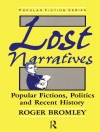New essays providing a comprehensive view of the pathbreaking dramatist and theorist Lessing.
One of the most independent thinkers in German intellectual history, the Enlightenment author Gotthold Ephraim Lessing (1729-1781) contributed in decisive and lasting fashion to literature, philosophy, theology, criticism, and drama theory. Lessing invented the
bürgerliches Trauerspiel (bourgeois tragedy) and wrote one of the first successful German tragedies as well as one of the finest German comedies. In his final dramatic masterpiece,
Nathander Weise, he writes of Christianity, Judaism, and Islam, of religious tolerance and intolerance and the clash of civilizations. Lessing’s dramas are the oldest German theater pieces still regularly performed (both in Germanyand internationally), and both his plays and his drama theory have influenced such writers as Goethe, Schiller, Hebbel, Hauptmann, Ibsen, Strindberg, Schnitzler, and Brecht. Addressing an audience ranging from graduate students toseasoned scholars, this volume introduces Lessing’s life and times and places him within the broader context of the European Enlightenment. It discusses his pathbreaking dramas, his equally revolutionary theoretical, critical, and aesthetic writings, his original fables, his innovative work in philosophy and theology, and his significant contributions to Jewish emancipation. The volume concludes by examining 20th-century reception of Lessing and his oeuvre.
Contributors: Barbara Fischer, Thomas C. Fox, Steven D. Martinson, Klaus L. Berghahn, John Pizer, Beate Allert, H. B. Nisbet, Arno Schilson, Willi Goetschel, Peter Höyng, Karin A. Wurst, Ann Schmiesing, Reinhart Meyer, Hans-Joachim Kertscher, Hinrich C. Seeba, Dieter Fratzke, Helmut Berthold, Herbert Rowland.
Barbara Fischer is Associate Professor of German and Thomas C. Fox is Professor of German, both at the University of Alabama.
Inhoudsopgave
Introduction: Lessing’s Life and Work – Barbara Fischer and Thomas C. Fox
Lessing and the European Enlightenment – Steven D. Martinson
Lessing the Critic – Klaus L. Berghahn
Lessing and the Fable – John Pizer
Lessing’s Poetics as an Approach to Aesthetics – Beate Allert
Lessing and Philosophy – H. B. Nisbet
Lessing and Theology – Arno Schilson
Lessing and the Jews – Willi Goetschel
Lessing’s Drama Theory – Peter Höyng
Gender and Identity in Lessing’s Dramatic Works – Karin A. Wurst
Lessing and the Third Reich – Ann Schmiesing
Lessing on the German-Speaking Stage in the Federal Republic of Germany, Austria, and Switzerland, 1945-1990 – Reinhart Meyer
Lessing on the East German Stage and Screen – Heinz-Joachim Kertscher and Thomas C. Fox
200 Years of Lessing Reception – Hinrich C. Seeba
The Lessing Museum in Kamenz – Dieter Fratzke
The Lessing Academy in Wolfenbüttel – Helmut Berthold
The Lessing Society – Herbert Rowland
Over de auteur
THOMAS C. FOX is Professor of German at the University of Alabama. He is the author of Stated Memory: East Germany and the Holocaust (Camden House, 1999) and co-editor of Companion to the Works of Lessing (Camden House, 2005).












